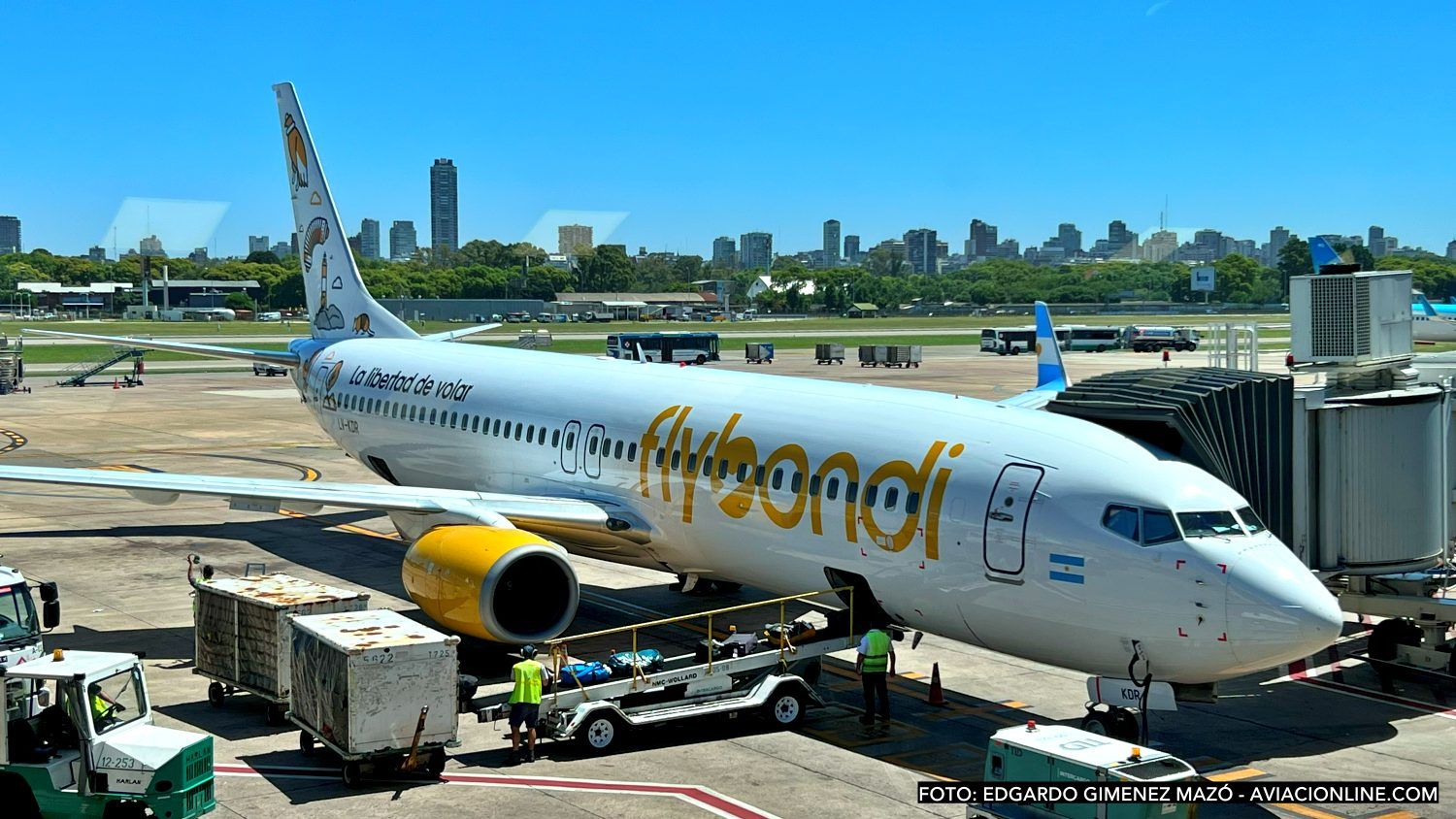Flybondi executives and ANAC officials face criminal complaint over alleged maintenance violations
Argentina’s Federal Criminal and Correctional Prosecutor’s Office No. 2, led by prosecutor Carlos Alberto Rívolo, has filed a criminal complaint involving executives of low-cost airline Flybondi and officials from the National Civil Aviation Administration (ANAC) over alleged serious maintenance violations that could have compromised the operational safety of commercial flights.
The complaint centers on claims that Flybondi continued performing aircraft maintenance at its workshop located at Ezeiza International Airport during a period when the facility was officially suspended by ANAC—from October 4 to November 14, 2024.
According to preliminary investigation documents, at least 37 maintenance interventions were carried out on operational aircraft during the suspension, in direct defiance of a grounding order issued by ANAC’s Airworthiness Directorate.
The complaint names Flybondi CEO Mauricio Sana, along with the airline’s Head of Operational Safety Fabián Pérez, Technical Representative Omar Buono, Quality Manager Walter Fridman, Maintenance Manager Juan Pablo Luchetti, and other company personnel.
Also named are ANAC officials María Julia Cordero (administrator), Marcelo Moroni (former national director of operational safety), and Pablo Coradazzi (airworthiness director), for alleged omissions in their oversight responsibilities.
"A challenge to authority"
An ANAC inspector assigned as Flybondi’s primary contact stated that upon discovering maintenance was ongoing at the suspended workshop, “I had never encountered such a direct challenge to authority. It was truly shocking. Suspensions are rare, but when they do happen, they are usually followed.”
During a surprise inspection, the inspector found that maintenance logs included tasks performed at the Ezeiza facility, which was not listed as an authorized site for relocating mechanics. “That meant the work was being done there irregularly,” the inspector said.
Another ANAC inspector described the situation as one of the most serious breaches he had seen in his career. He warned:
“It's extremely serious to disobey such an order (…) Almost all aircraft were serviced at the Ezeiza workshop while it was suspended. We requested the suspension of Flybondi’s Air Operator Certificate (CESA), because for an aircraft to be airworthy, it must be serviced at certified workshops.”
Operational safety at risk
Inspectors agreed that Flybondi’s actions posed a risk to flight safety. Issues such as missing traceability of spare parts, faulty tools, undertrained staff, and inadequate facilities were among the anomalies detected.
One specific case, on November 9, 2024, involved a Boeing 737-800 flying with a windshield seal outside manufacturer specifications. Flybondi deemed the repair “not applicable” and continued operating the aircraft. ANAC later ordered an urgent correction, which was carried out, and the discrepancy acknowledged.
“Failing to follow manufacturer instructions is considered serious,” said the inspector. “It jeopardizes aircraft safety, which is why we demanded the repair be done immediately.”
Institutional response fell short
Despite several documented violations—at least four between October and December 2024—no effective sanctions were enforced, according to the complaint. Inspectors said the workshop suspension was lifted based on a corrective action plan they deemed insufficient.
The Chief Inspector of Airworthiness in ANAC’s Repair Workshops Department testified that this was “the most serious irregularity we’ve seen—continued operation of a suspended facility.” He and other inspectors formally requested to be excused from supervising Flybondi, claiming their warnings were being ignored by senior leadership.
Possible cover-up?
Prosecutor Rívolo is not only targeting the airline but also ANAC officials who may have failed to act on the inspectors’ reports, suggesting their omissions could amount to criminal negligence.
One particularly sensitive revelation is that new authorizations granted to Flybondi’s workshop were issued without input from the relevant technical inspectors.
“In my role as Department Head, I’ve never seen inspectors request exemption from further technical evaluations of a company. This situation is unprecedented,” one official stated.
However, when asked by the prosecutor whether the situation endangered flight safety, the Head of ANAC’s Air Transport Department said he could not confirm that unsafe flights had taken place, though he admitted that the airline failed to maintain proper records.
“I believe they poorly assessed the situation. Not responding to regulatory notices is a clear act of disobedience,” added another ANAC official.
The case is being investigated under Articles 190 and 248 of the Argentine Penal Code, related to crimes against transportation safety and abuse of authority, respectively, though further charges may arise as the case develops.
ANAC told Aviacionline it had not yet been formally notified of the complaint, but it would prepare all relevant documentation for judicial review.
“We will present evidence proving that ANAC fulfilled its regulatory role, conducted inspections at Flybondi’s TARs in Aeroparque and Ezeiza, and required aircraft recertification when necessary, maintaining operational safety at all times,” the agency stated.
Flybondi also responded, saying it had not received formal notification of the complaint, but would be prepared to provide documentation to demonstrate full compliance with ANAC’s requirements.


Comentarios
Para comentar, debés estar registrado
Por favor, iniciá sesión